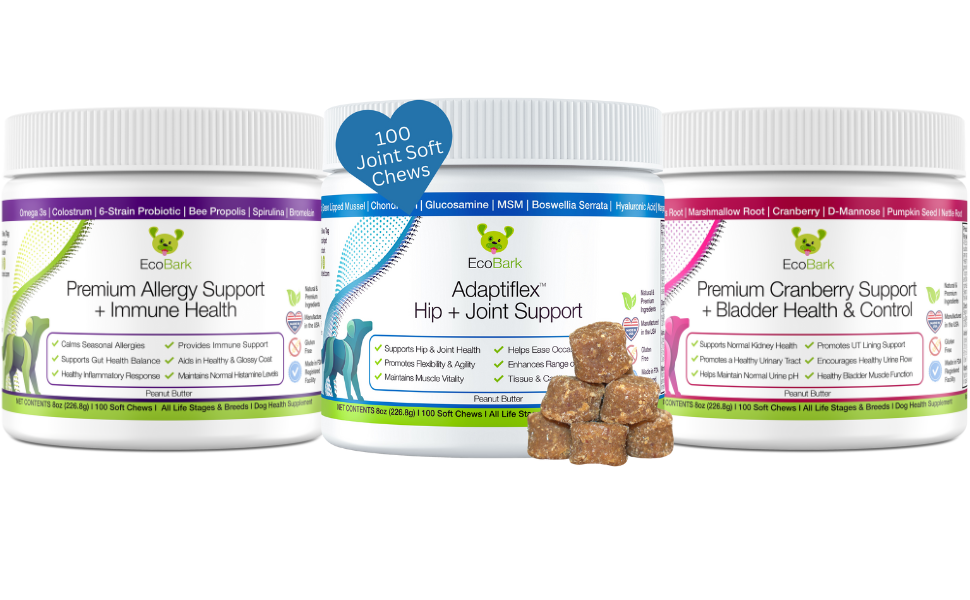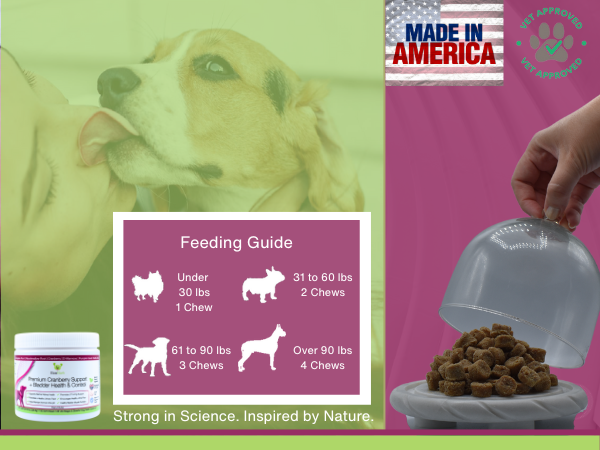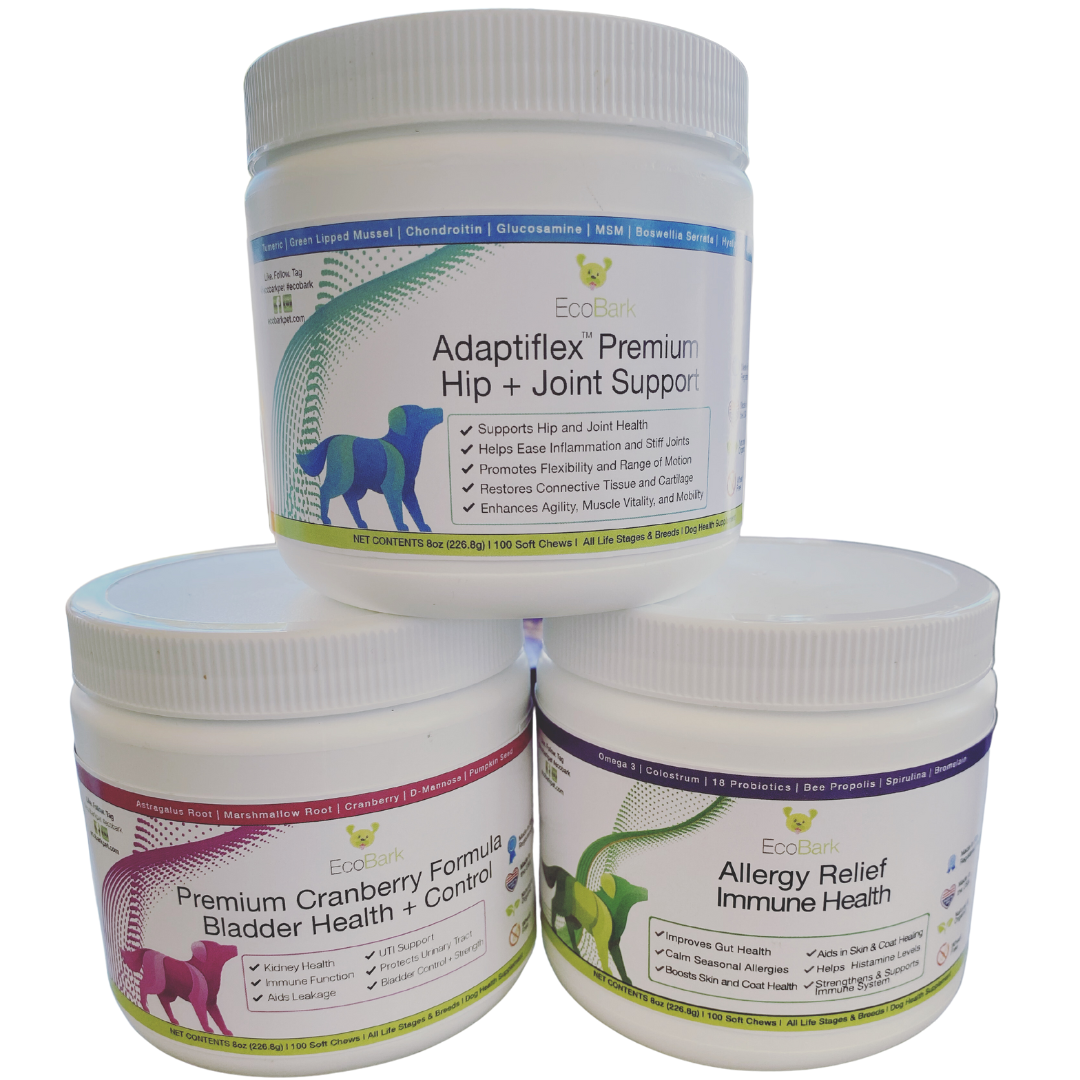Comprehensive Guide to Understanding, Managing, and Treating Allergies in Dogs and Puppies
Comprehensive Guide to Understanding, Managing, and Treating Allergies in Dogs and Puppies
Welcoming a furry friend into your home brings immense joy and companionship. However, along with the wagging tails and playful antics, dogs can also experience allergies, which can significantly impact their health and quality of life. As a responsible pet owner, it's essential to recognize the signs, understand the causes, and explore effective treatment options to ensure your canine companion remains happy and healthy. In this comprehensive guide, we'll delve into the world of dog allergies, covering everything from common triggers to advanced treatment modalities, including the role of supplements in managing allergic reactions.
Understanding Dog Allergies
Dog allergies are a prevalent concern among pet owners and veterinarians alike, with allergic reactions affecting dogs of all breeds, ages, and backgrounds. While humans may outgrow allergies over time, dogs often experience worsening symptoms as they age. Recognizing the signs and identifying potential triggers is crucial for effective management.
Common Signs of Dog Allergies
The signs of allergies in dogs can manifest in various ways, including:
- Persistent itching
- Excessive scratching, chewing, or licking
- Red, inflamed skin
- Hair loss or thinning coat
- Recurrent ear infections
- Gastrointestinal disturbances, such as vomiting or diarrhea
These symptoms can significantly impact your dog's comfort and well-being, prompting the need for prompt intervention and treatment.
Types of Allergies in Dogs
Allergies in dogs can stem from a wide range of triggers, including:
1. Flea Allergies Flea allergy dermatitis (FAD) is one of the most common allergic skin diseases seen in dogs. Even a few flea bites can trigger an intense allergic reaction, leading to severe itching, redness, and discomfort. Flea saliva contains proteins that can provoke an allergic response in sensitive dogs.
2. Seasonal/Environmental Allergies Also known as atopic dermatitis, seasonal or environmental allergies result from exposure to airborne allergens, such as pollen, dust mites, mold spores, and plant or animal dander. Dogs with atopy may experience itching, redness, and skin lesions, particularly in areas with thin fur or limited protective barriers.
3. Food Allergies Food allergies occur when a dog's immune system reacts adversely to specific ingredients in their diet. Common allergens include proteins (e.g., beef, chicken, or lamb), grains (e.g., wheat, corn, or soy), and preservatives. Food allergies can manifest as skin problems, gastrointestinal issues, or a combination of both.
4. Medical Allergies In addition to flea bites, environmental allergens, and dietary ingredients, dogs can also develop allergic reactions to medications. These reactions may range from mild itching to severe anaphylaxis, necessitating immediate medical attention.
Diagnosing Dog Allergies
Identifying the underlying cause of your dog's allergies is essential for developing an effective treatment plan. Your veterinarian may employ various diagnostic tools and techniques, including:
- Comprehensive physical examination
- Review of medical history and clinical symptoms
- Allergy testing (e.g., skin prick tests, serum IgE testing)
- Elimination diets to identify food allergens
- Response to treatment trials and therapeutic interventions
Treatment Options for Dog Allergies
Treatment for dog allergies aims to alleviate symptoms, address underlying triggers, and improve your pet's quality of life. Depending on the type and severity of your dog's allergies, treatment options may include:
1. Flea Allergy Dermatitis (FAD) Effective flea control is essential for managing FAD. Your veterinarian may recommend topical or oral flea preventatives, environmental treatments, and regular grooming to prevent flea infestations. Additionally, supplements containing omega-3 fatty acids or natural antihistamines can help reduce itching and inflammation associated with flea bites.
2. Seasonal/Environmental Allergies Treatment for atopic dermatitis may involve a combination of medications, topical therapies, and environmental modifications. Oral medications such as antihistamines, corticosteroids, or cyclosporine (e.g., Atopica) can help control itching and inflammation. Supplements containing omega-3 fatty acids, bee propolis, colostrum, spirulina, probiotics, or brewer's yeast may offer additional support for skin health and immune function.
3. Food Allergies Managing food allergies in dogs requires strict dietary management and elimination of potential allergens. Your veterinarian may recommend hypoallergenic or novel protein diets, hydrolyzed protein diets, or homemade diets formulated with limited ingredients. In addition to dietary changes, supplements like probiotics or digestive enzymes can aid in digestion and support gastrointestinal health.
4. Medical Allergies If your dog experiences an allergic reaction to a medication, discontinue its use immediately and seek veterinary guidance. Your veterinarian can assess the severity of the reaction and recommend alternative treatment options or formulations. Additionally, allergy testing may help identify specific allergens and guide future medicine selection.
Consult Your Veterinarian for Personalized Guidance
Managing dog allergies requires a tailored approach based on your pet's individual needs, medical history, and response to treatment. Your veterinarian is your best resource for personalized guidance and comprehensive care. They can provide expert advice, prescribe appropriate medications, and recommend specific supplements to support your dog's health and well-being.
Conclusion
While allergies can pose challenges for dogs and their owners, proactive management and targeted interventions can help minimize symptoms and improve your pet's quality of life. By understanding the signs, identifying potential triggers, and exploring effective treatment options, you can provide your furry companion with the care and support they need to thrive. Remember to consult your veterinarian for personalized guidance and comprehensive care tailored to your dog's specific needs.















Leave a comment